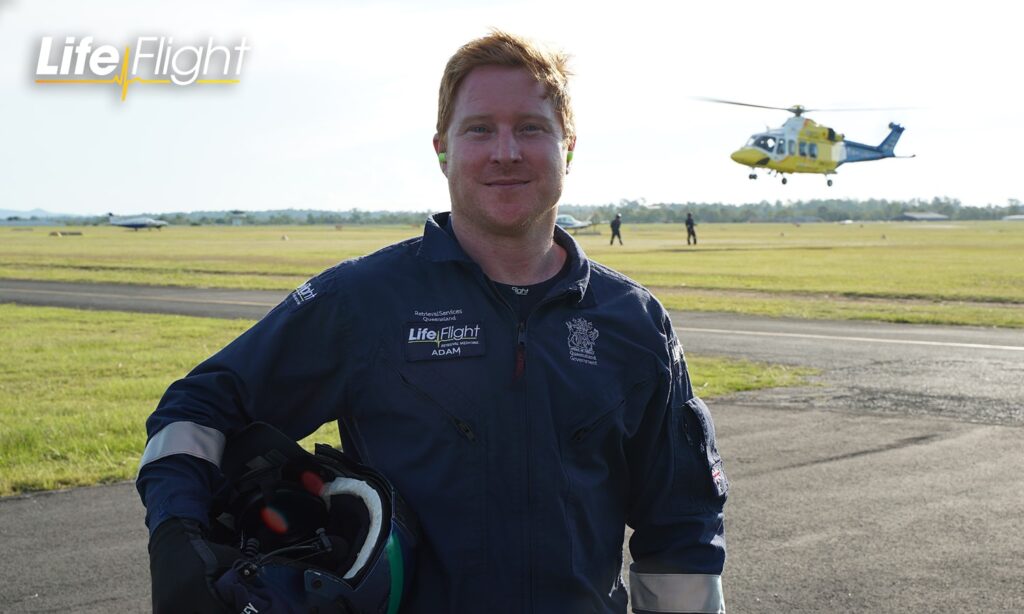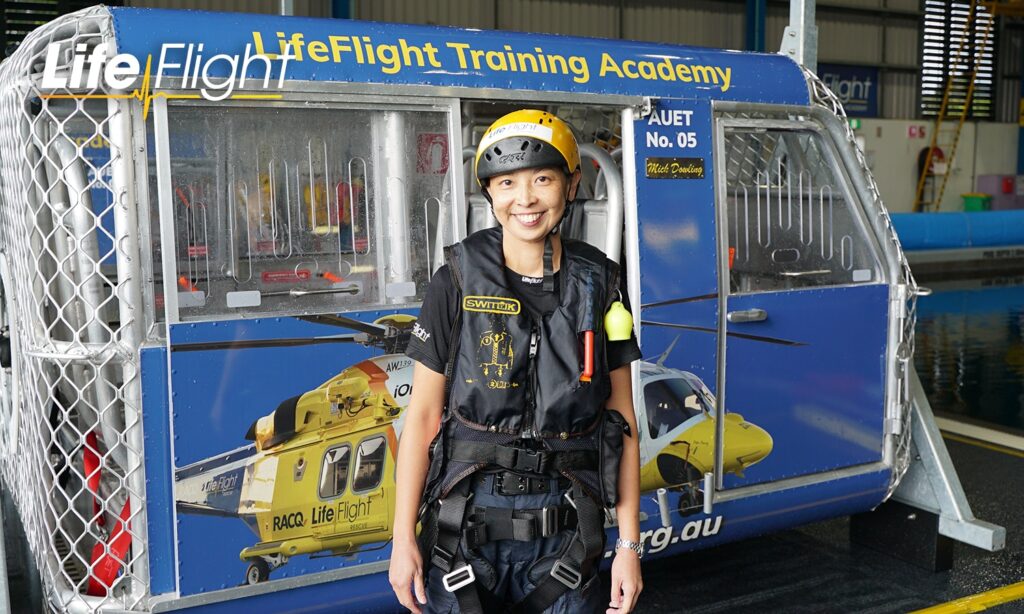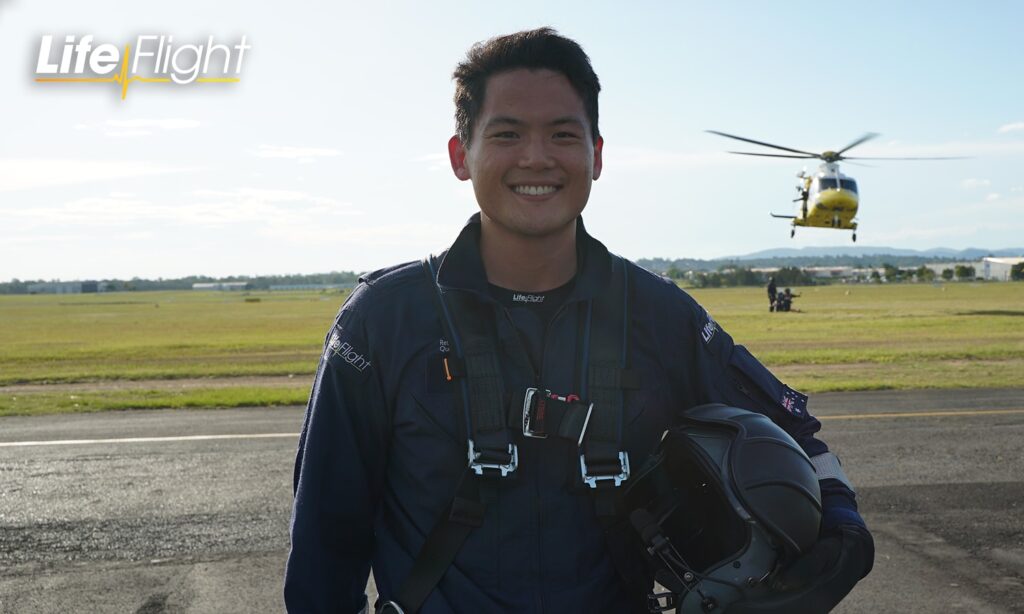
Three new RACQ LifeFlight Rescue critical care doctors are taking flight in Bundaberg, enhancing the level of aeromedical care provided to the Wide Bay-Burnett region.
Two new full-time retrieval registrars, Dr Yulia Sugeng and Dr Aaron Quay, plus a specialised consultant, Dr Adam Simpson, will join the experienced Bundaberg crew.
Their appointment bolsters the service's doctor rotation from three day shifts a week to seven.
Doctors started working on the helicopter from August last year, covering Friday to Sunday, which are typically the busier days for emergency callouts.
The initial push for doctors to work on board the Bundaberg rescue chopper was established by respected local philanthropists and long-time LifeFlight supporters, Ron and Fay Simpson and was quickly supported by the local community.
The Simpson Foundation's generous donation of $755,000 made the three days a week model of Phase One possible.
Fundraising efforts are continuing to achieve Phase Three, which will see LifeFlight secure enough funding to have Critical Care Doctors on board the chopper day and night, every day of the year.
“We are extremely grateful to be able to move the service further ahead,” said LifeFlight Clinical Services Director Dr Jeff Hooper.
“Residents in the Wide Bay and Burnett already had access to world-class care and this funding is a vital part of meeting even higher demands.”
The new doctors will join experienced aviators and Queensland Ambulance Service (QAS) Flight Paramedics, some of whom have been with the service for decades.
“It's been wonderful to see the incredible outcomes the crews have been able to achieve so far in Phase One, with the unique, advanced skills of the doctors and QAS Paramedics complementing each other brilliantly,” said Dr Hooper.
Doctor Yulia Sugeng said she feels privileged to be one of the new doctors to be working aboard the chopper, throughout the week.

“It's very exciting for the community to have that seven-day service, which will hopefully become a 24-hour service as well,” she said.
“I see it as a big privilege to be able to help people in that sort of challenging environment, like a car crash or farming incident.”
Before taking to the rescue chopper, the three new recruits underwent rigorous pre-hospital and retrieval clinical skills training at the LifeFlight Training Academy.
The world-class aeromedical training requires RACQ LifeFlight Rescue Critical Care Doctors to learn helicopter winching techniques and complete the Helicopter Underwater Escape Training (HUET).
The winch training gives doctors the skills to treat patients in difficult-to-access terrain, said LifeFlight's Chief Aircrew Officer Simon Gray.
“This training is the most important thing that they do,” he said.
“It can be used for a variety of situations we might find ourselves in.
“Probably the most common one is when we have no vehicle access. A bushwalker injuring themselves in some inhospitable terrain where we can’t get a vehicle to them or a vehicle may take too long to get to them.
“Aircraft accidents where an aircraft has crashed into the forest. Again, that’s a likely scenario where we would winch a doctor down to save someone’s life.”

HUET fully prepares doctors for the extremely unlikely event of a helicopter crash, said LifeFlight HUET Manager Mick Dowling.
“If that helicopter was to land on the water or going to the water, it is going to roll over and sink,” he said.
“The skills that we teach the guys in our dunkers allows us to teach them the skills to stay orientated so they can locate exits, operate seatbelts and then find themselves out in a very easy manner.
The new RACQ LifeFlight Rescue critical care doctors also put their clinical skills to the test, participating in high-pressure scenarios at the Queensland Combined Emergency Services Academy at Whyte Island, in Brisbane.
The scenarios simulate some of the most extreme situations the doctors may face, including a multi- vehicle crash, a pool party with a drowning child, and even a ship disaster.
Other news:




